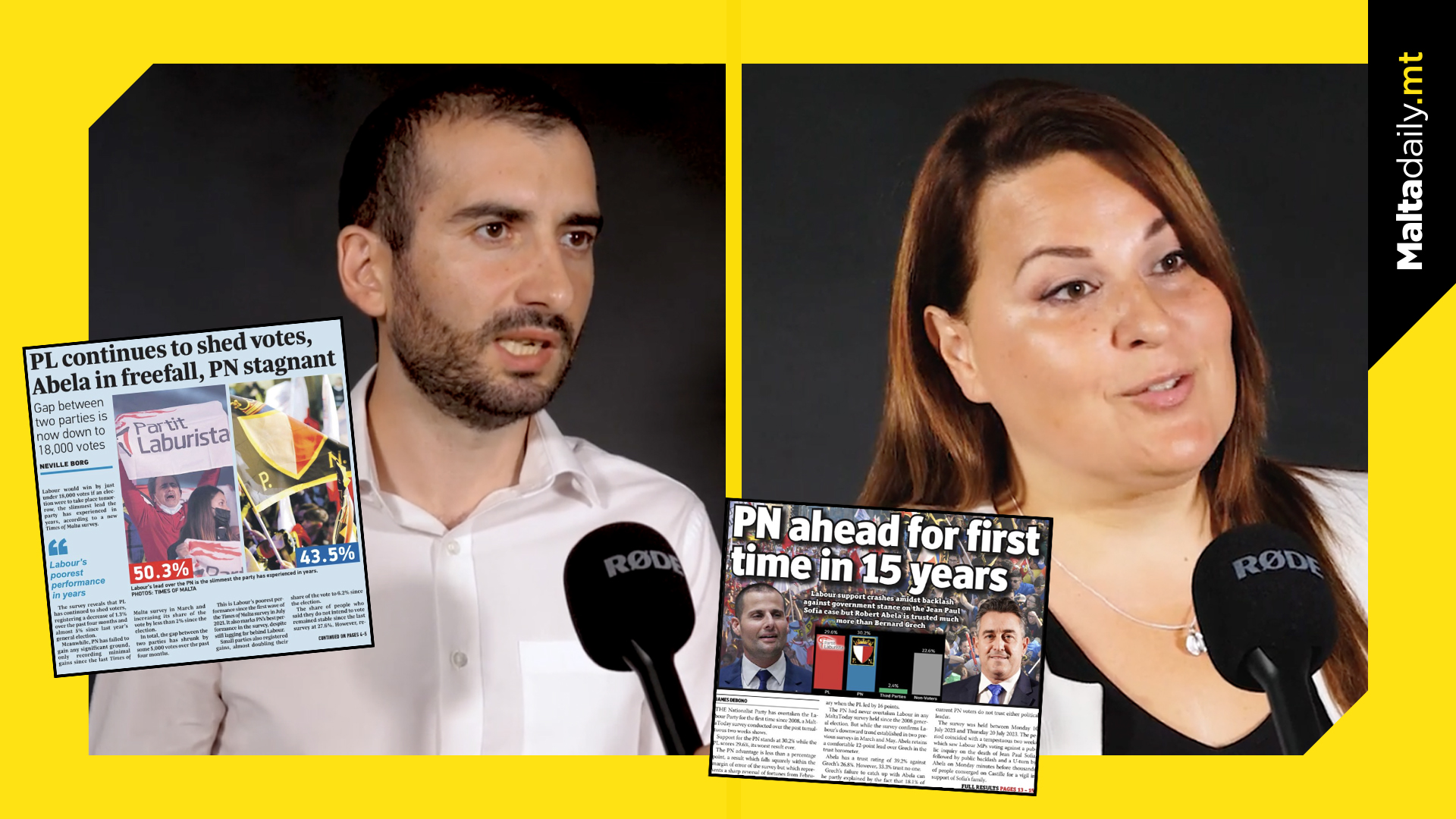
Surveys, often regarded as barometers of public sentiment, can significantly impact political parties and their supporters. Recently, two Sunday newspapers in Malta (Malta Today and Times of Malta) published surveys gauging public opinion on the political landscape. We reached out to two Members of Parliament, Amanda Spiteri Grech from the Labour Party (PL), and Mark Anthony Sammut from the Nationalist Party (PN), to get their reactions to the survey results and to understand how they perceive their parties’ performance.
MP Amanda Spiteri Grech – Labour Party
When asked about her reaction to the surveys, Spiteri Grech responded with optimism and a strong focus on the future. She acknowledged the transient nature of survey results, emphasising that the ultimate judgment of a party’s performance comes on Election Day. She urged her party to continue working hard, inspiring people, and implementing necessary reforms. Her confidence in the Labour Party’s ability to effect positive change was evident as she highlighted the government’s track record of bringing about significant reforms and advancing social justice.
When questioned about the PN’s lack of significant growth despite the PL’s slight reduction in popularity, Spiteri Grech remained steadfast in her belief that the Labour Party’s work speaks for itself. She reiterated the importance of staying true to their core principles, and she attributed the PL’s success to their genuine beliefs and commitment to the welfare of the people. For Spiteri Grech, the Labour Party’s ability to bring about impactful changes in people’s lives and support families during challenging times differentiates them from their opponents.
MP Mark Anthony Sammut – Nationalist Party
Contrasting with Spiteri Grech’s optimism, Mark Anthony Sammut’s response centered on criticising the current government’s performance. He emphasised that the surveys demonstrate people’s growing realisation that the government has failed to improve their lives, and he pointed out economic and policy shortcomings that have negatively impacted citizens’ quality of life.
Sammut highlighted the Prime Minister’s decisions and certain incidents that have eroded public trust in the government. He expressed the belief that the mask of the current government has finally fallen, paving the way for the Nationalist Party to offer a viable alternative. Sammut acknowledged that the PN has work to do in convincing people that it can effectively lead and bring about positive change.
Regarding the PN’s limited growth despite the government’s decrease in popularity, Sammut attributed it to the longstanding perception that the PN was unlikely to win elections. However, with the possibility of the PN being a competitive force, he expressed hope that people will now pay more attention to the party’s proposals and vision for the future. Sammut sees this as a crucial opportunity to convince the public that the PN can offer a better quality of life and chart a different course for the country.
From the responses of Amanda Spiteri Grech and Mark Anthony Sammut, two distinct perspectives emerged. Spiteri Grech’s focus remained firmly on the Labour Party’s achievements and ongoing commitment to social justice and reforms. She exuded confidence in the party’s ability to inspire and connect with the people. On the other hand, Sammut’s response was characterised by criticism of the government’s performance and the PN’s ambition to present a credible alternative.
Examining and comparing their reactions:
Both MPs recognised the significance of the survey results, but their reactions highlighted the differing approaches of their respective parties. While the Labour Party stressed its track record and determination to continue working for the betterment of citizens’ lives, the Nationalist Party appeared more focused on leveraging the perceived shortcomings of the current government to present itself as a viable choice.
As the political landscape evolves, these contrasting reactions will undoubtedly play a role in shaping public perceptions and potentially influencing electoral outcomes. Ultimately, it will be the voters who determine which party’s approach resonates more closely with their hopes and aspirations for the future of Malta.
#MaltaDaily















